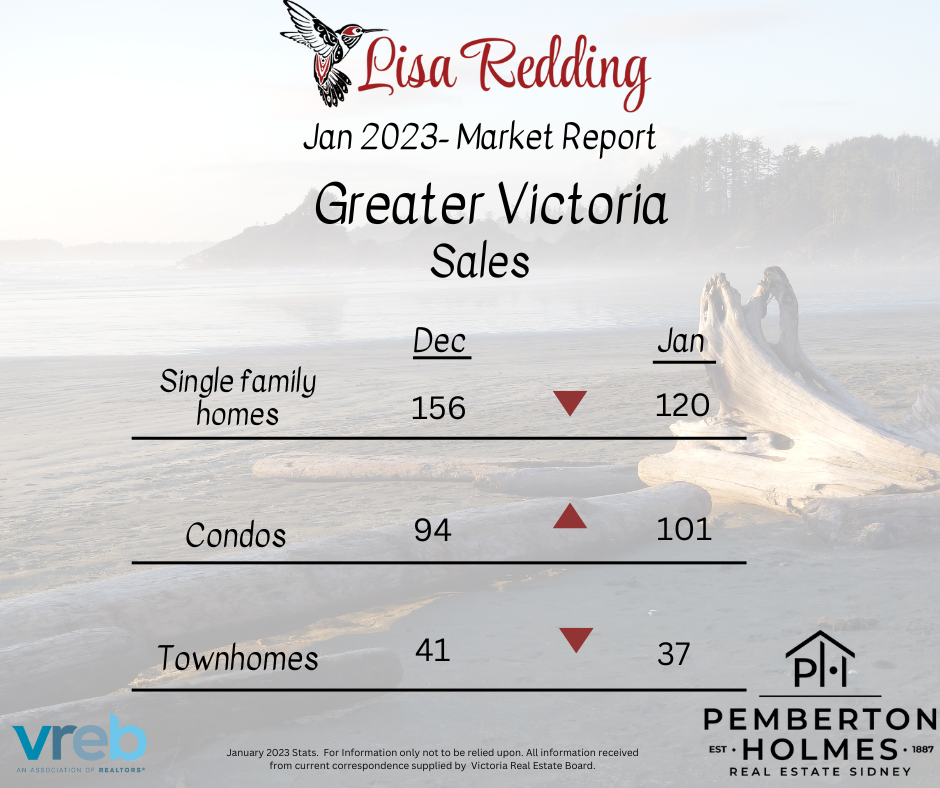A slow start to the year may not foretell the future for the Victoria housing market
A total of 278 properties...
Call or text 250-882-0868 lisa@lisaredding.com


A total of 278 properties...

December 1, 2022
A total of 384 properties sold in the Victoria Real Estate Board region this November,...

There’s an interesting psychological characteristic of clutter. We tend to notice it more in other...

|
|
||
July 2, 2019 A total of 740 properties sold in the Victoria Real Estate Board region this June, 4.5 per cent more than the 708 properties sold in June 2018 but a 12.7 per cent decrease from May 2019. Sales of condominiums were down 6.1 per cent from June 2018 with 216 units sold. Sales of single family homes increased 10.4 per cent from June 2018 with 394 sold. |

When preparing your property to show, work your way from the outside in. It is essential that your home...

Once you’ve minimized the clutter in your home, clearing out excess items and furniture, you’ll...
.png)
Budgeting for a new home can be tricky. Not only are there mortgage installments and the down payment...

You’ve been saving for awhile, weighing your options, looking around casually. Now you’ve...

Selling your home is a complex process that can be stressful and time-consuming. An experienced Realtor...